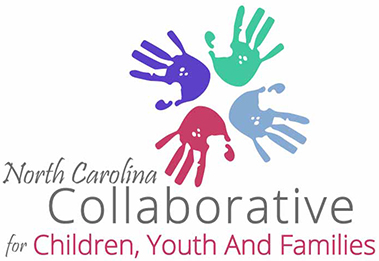|
Thank you Pinnacle Family Services for allowing us to reshare. “Music is the glue for human connection, and has been a way of communication before words were ever spoken. Language may individualize, but music harmonizes, it binds us all with its healing powers and universal voice.” Dr. Talin Babikian, Clinical Neuropsychologist |
This week’s TIPS focuses on Music and Singing. We know that rhythm and repetition help to heal the traumatized brain. And what better way to use rhythm and repetition than through music—they are core components of music. One of my all-time favorite songs isHappy by Pharrell Williams. You can just ask my family as I light up when the song comes on the radio and I have used the song in making family vacation videos—that means that the song has to be playing over and over to get just the right shots. For proof of this you can click on the following link from our family vacation 6 years ago: https://www.youtube.com/watch?v=o9XEEXb3bvE. What is the song that makes you happy—that lifts you up, that puts you in “your good place”? Whatever that song is, it has beneficial effects for a healthy brain and body. Google that song and listen to it right now—and share it with me if you so desire.? Below is an article 5 Ways to Build Social and Emotional Skills through Music. Attached are several articles related to using music to build resiliency. And scroll down for additional resources. I encourage you to watch the PS22 Children’s Choir videos below—as they are amazing!
| 5 Ways to Build Social and Emotional Skills Through Music
by: Emily Doerr | May 20th, 2020 Ahh … the power of music. It has so many benefits for our minds and bodies. It enhances cognition, provides comfort, and improves memory. Music also helps with mood regulation and can reduce stress, anxiety, and depression. Music and social and emotional learning (SEL) go hand-in-hand. Teaching students about music and performance promotes important social and emotional skills that will stick with them throughout their lives. Students learn to manage their emotions, are taught to celebrate diversity, and develop leadership skills. Especially during school closures and these uncertain times (and being a former music teacher myself) I wanted to share some ways to promote SEL through music. 1) Teach Music During COVID-19 Music shouldn’t take a back burner during school closures. In fact, our students need music now, more than ever! Keep prioritizing music instruction and use it to help students develop social and emotional skills. Learn More: There are many free music resources available right now that can used at home and in online and distance learning. Here are a few to get started. 2) Improve Students’ Mental Health with Music Research shows that listening to music increases the amount of dopamine (a mood-enhancing chemical) in the brain, which means it can have a positive effect on our mental health. This is especially important right now, as students face higher levels of stress, anxiety, and isolation. Learn More: Here are some free lessons that teach students how music can improve their mood, emotions, and perceptions. 3) Celebrate Diversity Through Music Music can be a fun way for students to explore other cultures and customs. By learning about different musical traditions, students learn to accept differences in others and celebrate diversity. Learn More: The Smithsonian Folk Ways Recordings website is a wonderful resource that includes lesson plans for a range of age groups. Have fun exploring music from around the world. 4) Work Through Emotions Through Musical Performance We’ve all felt nervous before a performance — your palms get sweaty, your breathing becomes irregular, and you feel a pit in your stomach. Performing in front of others is a good opportunity for students to practice a range of social and emotional skills. Besides learning to control pre-performance emotions, students also learn how to cope when a performance doesn’t go perfectly. Learn More: Wendy Hart Higdon is a music teacher who helps students work through anxiety before performing. In this post, Hart Higdon does a nice job explaining the emotions students commonly feel and strategies for overcoming them. Use her tips to incorporate SEL into your own instruction. 5) Foster Leadership Skills Music can be a good way for students to develop and practice leadership skills. Performing can push students to learn, collaborate, and grow. It also requires teamwork, effective communication, self-awareness, problem-solving, and cooperation — all important traits of a good leader. Learn More: This article by author/musician Simon Tam explores how leadership is an integral part of being a musician. Tam includes five leadership lessons that students can learn through music and links them to real-world examples. Share these with your students to develop their leadership skills. Music helps students develop a range of important social-emotional skills that will prove useful not only during performances but also throughout their lives. There are many ways to incorporate SEL into your musical instruction, and doing so will have lasting benefits for your students. Interested in learning more? |
Additional Resources:
https://theinspiredclassroom.com/2018/01/teach-sel-listening-music/
Music Therapy Activities: https://positivepsychology.com/music-therapy-activities-tools/
Trauma and Music Therapy: Let the Healing Begin: https://www.youtube.com/watch?v=IWQnTUunhuY (18 minutes video)
Music Therapy and Its Impact on the Brain: https://www.youtube.com/watch?v=b5pe7KzRwog (18 minute video)
Your Brain on Music: https://www.youtube.com/watch?v=MZFFwy5fwYI (17 minute video)
https://www.jcfs.org/blog/were-all-together-how-music-and-singing-benefits-trauma-affected-children
PS22 Choir “Across the Universe”: https://www.youtube.com/watch?v=-t2cNAyWVBY
PS22 Choir “This is Me”: https://www.youtube.com/watch?v=wsrfkFdNJv4
PS22 Choir “100 Bad Days” AJR: https://www.youtube.com/watch?v=1xhMRTluqNc
PS22 Choir: “Don’t Give Up On Me” Andy Grammer: https://www.youtube.com/watch?v=KL9qp0FNEzU
| “Music is a social glue that clearly enhances our sense of mental wellbeing.” Alan Harvey, neuroscientist and musician |
